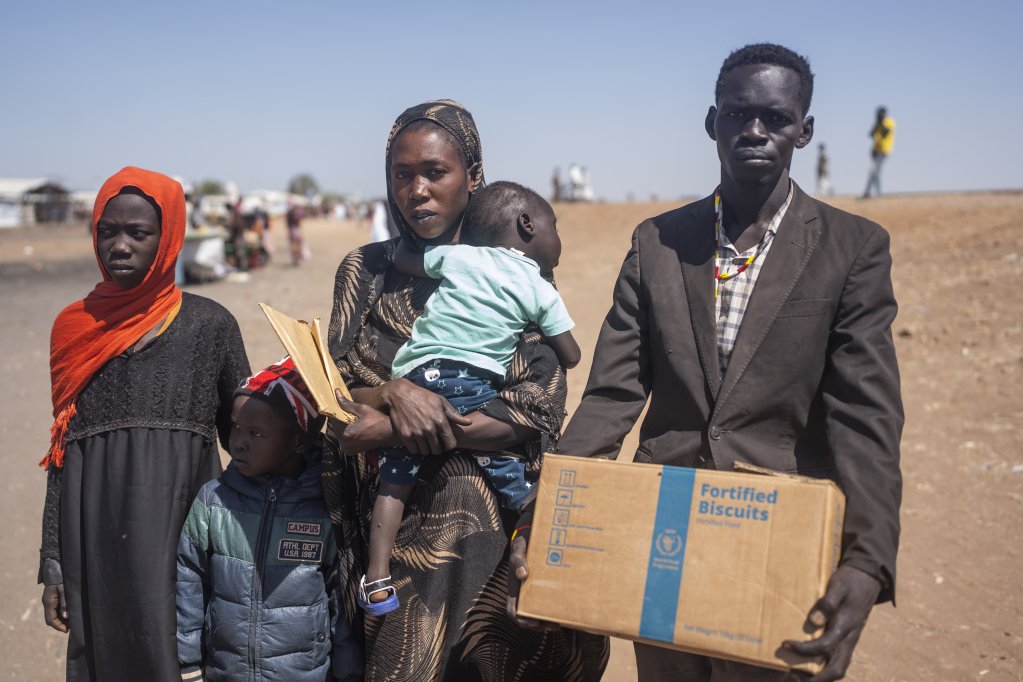Refugees from Sudan continue to flee to Egypt seeking protection. But with new rules requiring them to pay a large fee for residency or obtain proof of registration from the UN, local media say many fear that they will be expelled from the country.
As the war in Sudan rages on for 14 months, refugees continue to cross into neighboring countries – mainly Chad, South Sudan and Egypt.
By the end of June this year, the number of people forced to leave their homes in Sudan had risen to nearly 10 million, more than a quarter of the population.
The Egyptian cities of Giza, Cairo and Alexandria alone now host around half a million Sudanese refugees, according to the UN refugee agency, UNHCR.
Since April 2023, more than 617,000 Sudanese – mostly women and children – have approached the agency for help.
But many of these, according to a June 2024 UNHCR report, are not yet fully registered.
As of this week, these migrants are facing a serious problem, an official from the Egyptian Commission for Rights and Freedoms (ECRF) told the Egyptian media organization Mada Masr.
According to a government decree issued last September, which expired last Sunday, June 30, anyone who enters Egypt "illegally", or whose residency has expired, has to pay 1,000 US dollars, plus other fees, and must be sponsored by an Egyptian host.
Only registered refugees are exempt from the new status requirement, leaving more than 2,000 Sudanese, plus migrants of other nationalities, who have not yet been processed by UNHCR, at risk of losing access to state support or worse, being expelled.
Deportations amid growing hostility
Since the Sudan conflict began, Egyptian authorities have been accused of deporting hundreds of Sudanese nationals without allowing them to claim asylum.
A report by Amnesty International last month also claimed that hundreds of arrests targeting Black people had been made with Sudanese refugees – even children – held in "cruel and inhuman conditions."
Some, including the Al-Arab newspaper, say Egypt is trying to balance competing pressures – trying to uphold its international obligations to protect refugees while dealing with public discontent – and what the ECRF official called a "wave of hate-mongering and racist rhetoric" against migrants – over the influx of newcomers at a time of financial instability and rising living costs.
Sources have told Mada Masr that there may be another reason for the new legalization rule. They say Egypt is trying to collect data on the number of migrants in Egypt, where they are located and their impact on the economy.

Waiting in fear and hope
Outside UNHCR's Cairo office, located at 6th of October City, some of the migrants lining up to try to register ahead of Sunday’s deadline told Mada Masr that they are in constant fear of being sent back to Sudan. One man said his two sisters, both teachers in the city, had been told not to go to work as their school had shut down until the deadline was over.
Many Sudanese are facing the same dilemma. One man, applying for registration, told Mada Masr that his wife is due to give birth in August. He said they had applied to the UNHCR and had been given a date for their interview to register in November, five months away. The couple will officially have no residency before then, and they cannot go to a public hospital.
Unless they, and thousands of others like them, can speed up the process to receive an asylum seeker certificate and then a residency permit, all they have is a date slip on their phone.
With stories circulating of people being deported despite showing the date slip, obtaining the coveted yellow card or white certificate, depending on whether they have proof of identity, has become even more urgent.
